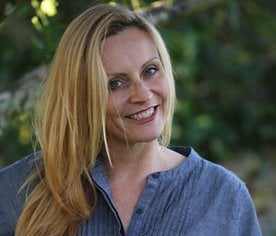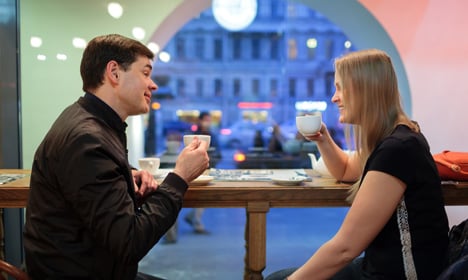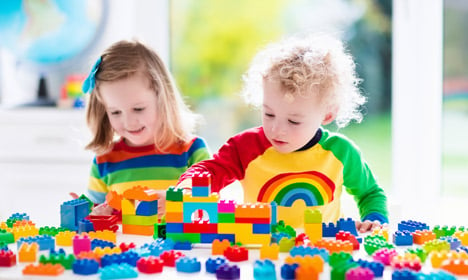When I first met my Danish husband-to-be, I can honestly say he was a man of mystery. We had many interesting conversations but he divulged little about himself. He wasn’t very forthcoming with any measurable indicators of his awesomeness and I found this a little disconcerting. I started to wonder if “Danish” wasn’t just a pseudonym for “serial killer”. What was he hiding? And if he wasn’t hiding anything, why would he be hiding something that might amplify his awesomeness?
Most guys I’d dated rattled off their CV on the first date. Anything worth knowing was worth sharing quickly. Here is my job title, here is a general idea of how much money I make (rounded up) and this is what I own or plan to own (rounded up). These A-bombs (awesomeness bombs) would typically be dropped during innocuous conversations whenever there was an opportunity.
“So I went to this park and it’s funny it really reminded me of my college campus, Stanford.” (Boom! A-bomb.) “I got my MBA before working in a school for orphans because I really wanted to brush up on my Spanish and get away from the hectic life of working in a law firm.” Boom, boom, boom!
I admit it. I was also quite a skilled A-bomber. During a lunch date, I was usually able to drop that I’d studied to be a pilot, graduated with honours and spoke French and Italian before dessert arrived. Dates like these left you drained of your accolades but at least you knew who you had in front of you. Or did you?
After more than a month of dating my Dane, I found myself wandering through his apartment. Ok, snooping through his apartment. I shockingly discovered a line of football trophies. He was also a skilled chess player and had beaten a grand master. He had even studied at a prestigious university. I felt betrayed. I took a trophy and stormed out to the kitchen.
“Why!? Why didn’t you tell me!?,” I yelled.
“What?” he said, looking confused.
“I saw how good you are at football and chess and I saw where you went to school! Why didn’t you tell me about all of these accomplishments?!”
He laughed and shrugged his shoulders. “I don’t know. Because you didn’t ask?”
Wow! This was news! Since when was asking a question a prerequisite for dropping an A-bomb? This was my first brush with Danish humility and it had completely blown me away. Within a year we were married.
What I have come to learn 14 years later, is that being humble is just as much a part of being Danish as apple pie is to being American. It is passed onto their children who then become naturally humble as adults. I believe it is one of the reasons the Danes are so consistently voted as among the happiest people in the world. They don’t need other people to justify how awesome they are because that isn’t a prerequisite to being interesting or valid. Therefore, they feel more secure with who they are and who they aren’t.
“We want our children to be respectful of others,” Iben Sandahl, a respected Danish psychotherapist and my co-author on ‘The Danish Way of Parenting’ said.
“Talking unnecessarily about achievements or how good you are seems strange to us. Since we think everyone has a right to be respected, from a CEO to a janitor, we try to teach our children to focus on the good in themselves and others rather than on status or labels,” she added.
As an American, this is a very interesting concept. Being driven to succeed for yourself builds the foundation for real self-esteem, not empty confidence fuelled by praise. Moreover, judging and being judged by what kind of a person you are rather than how accomplished you are removes the subtle competition that permeates much of our lives. It connects us rather than divides us. It encourages empathy instead of narcissism, which in turn increases wellbeing.
Thinking about it I can’t help but wonder: if we replaced apple pie with a little more humble pie would we be happier too? That’s just food for thought.
 Jessica Alexander is an American author who co-wrote 'The Danish Way of Parenting: A Guide to Raising the Happiest Kids in the World'. She has been married to a Dane for over 13 years and has always been fascinated cultural differences. She speaks four languages and currently lives in Rome with her husband and two children, Sophia and Sebastian.
Jessica Alexander is an American author who co-wrote 'The Danish Way of Parenting: A Guide to Raising the Happiest Kids in the World'. She has been married to a Dane for over 13 years and has always been fascinated cultural differences. She speaks four languages and currently lives in Rome with her husband and two children, Sophia and Sebastian.


 Jessica Alexander is an American author who co-wrote
Jessica Alexander is an American author who co-wrote Please whitelist us to continue reading.
Please whitelist us to continue reading.
Member comments